The highlights from AMLO’s trip to Colombia and Chile
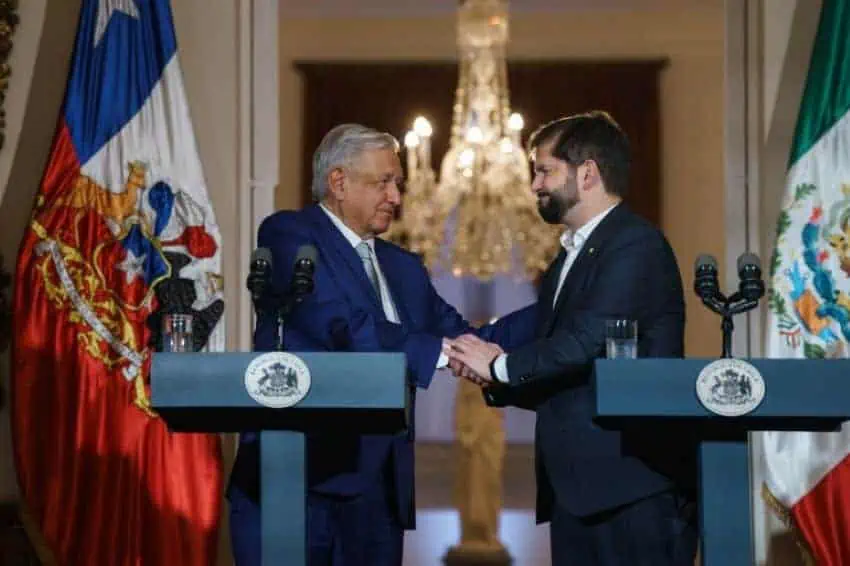
President López Obrador returned to Mexico late Monday from a four-day trip to Colombia and Chile, where he met with Colombian President Gustavo Petro and Chilean President Gabriel Boric.
It was just the sixth time in his almost five years in office that López Obrador (AMLO) embarked on an international trip.
Both Petro and Boric are, like AMLO, representatives of the political left, a situation that ensured they had common ground from the get-go and added cordiality to their meetings.
López Obrador told reporters at his Wednesday morning press conference that his trip went “very well” and that the “love” and “respect” the Colombian and Chilean people have for Mexico was “confirmed.”
Here are some of the highlights and key outcomes from the time AMLO and his delegation (including Foreign Affairs Minister Alicia Bárcena) spent in the Colombian city of Cali and the Chilean capital Santiago.
Mexico and Colombia agree to tackle the causes of drug trafficking and use
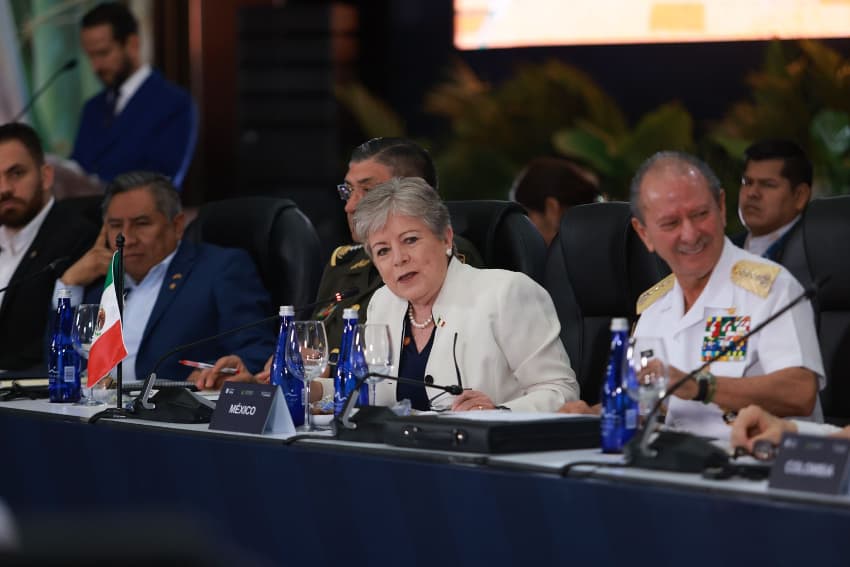
López Obrador touched down in Cali on an Air Force flight from Mexico City on Friday afternoon. The city where the infamous Cali Cartel was founded hosted the Latin American and Caribbean Conference on Drugs between Sept. 7 and 9.
At the conclusion of the conference, which was attended by officials from across the region, the governments of Mexico and Colombia “agreed to combat the trafficking and use of drugs” by addressing the causes of those problems, according to a statement issued by López Obrador’s office.
Representatives of the 19 countries that attended the conference also expressed their commitment to addressing the root causes of the global drug problem.
“[We have to] address the causes with new criteria, not just think about coercive measures,” López Obrador told the conference.
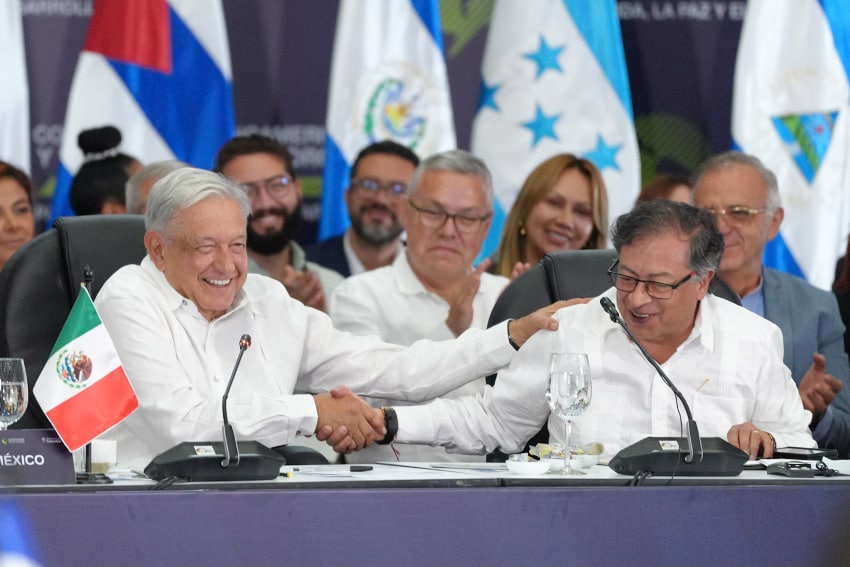
He highlighted the need for more licit investment in rural areas to promote the production of crops such as beans, corn and coffee over illegal ones such as marijuana and opium poppies. AMLO also said that “development with well-being” must be pursued and that particular support must be provided to young people to steer them away from a life of crime and drug use.
Mexico to export part of its “well-being model” to Colombia
Foreign Affairs Minister Alicia Bárcena, a former United Nations official and ambassador to Chile, met with her Colombian counterpart, Álvaro Leyva Durán, in Cali, and the pair signed “a letter of intent on bilateral cooperation to promote and carry out international development cooperation initiatives,” according to the Mexican Ministry of Foreign Affairs (SRE).
Those initiatives will be pursued “through programs, projects and actions that counteract the causes of poverty and achieve greater social integration and well-being for the inhabitants of both countries,” the SRE said.
Mexico’s development agency, called Amexcid, will “provide technical assistance and support with the aim of adapting the Sembrando Vida (Sowing Life) and Jóvenes Construyendo el Futuro (Youths Building the Future) projects to Colombian public policies on sustainable agriculture and youth,” the ministry said.
Mexico has already exported its reforestation/employment scheme and youth apprenticeship program to El Salvador and Honduras.
López Obrador asserts that the two programs help combat not only the root causes of crime and violence, but also key push factors for migration such as poverty and lack of opportunity.
AMLO attends ceremony in Santiago 50 years after the death of Allende
López Obrador on Monday was among current and former world leaders who attended a ceremony at Palacio de la Moneda, the seat of executive power in Chile where former president Salvador Allende took his own life on Sept. 11, 1973 during a military coup led by general Augusto Pinochet, who established a repressive dictatorship that lasted until 1990.
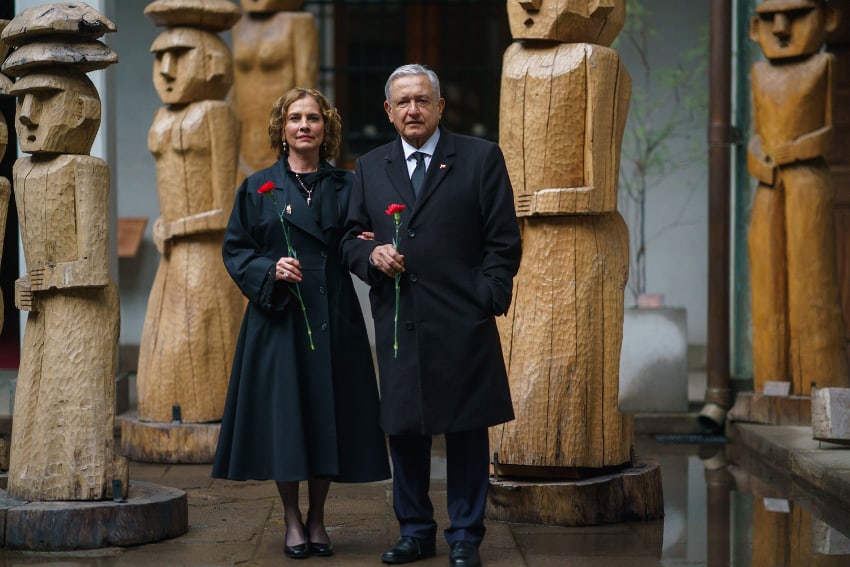
In a brief address, the Mexican president called Allende – a socialist president who led Chile for just under three years – “the apostle of Chilean democracy” and asserted that he still “governs with his example.”
López Obrador also said that the ex-president, senator and secretary of the Socialist Party of Chile remains a “symbol of dignity for public servants in the entire world.”
Speaking alongside President Boric at La Moneda on Sunday, AMLO recalled that he was a university student when the 1973 coup occurred, and noted that he had previously studied the “Chilean process” in a political science class.
“In that class we reviewed the text The State and Revolution by Lenin, and with that theoretical framework we foresaw the terrible possibility of a coup, which was carried out on September 11, 1973 – 50 years ago. That had a great impact on me, it made a mark on me,” he said.
“The Chilean president Salvador Allende … is the foreign leader who I admire the most. … He was a humanist, a good man, a victim of swine,” López Obrador said.
Ceremony marks 50 years of “Chilean exile” in Mexico
Salvador Allende’s wife and children were among the Chileans who went into exile in Mexico during the rule of a Pinochet-led military government that rounded up, tortured and killed thousands of people.
Senator Isabel Allende Bussi, who was 28 when the coup occurred, was among the Chileans who escaped to Mexico, and who attended a ceremony at the Mexican Embassy in Santiago on Monday.
In a speech, Allende Bussi recalled that hundreds of Chileans escaped prison and torture by taking refuge in the Mexican embassy during the early days of the dictatorship. She acknowledged the “warmth, generosity and solidarity” shown by Mexicans toward Chileans who faced risks to their lives.
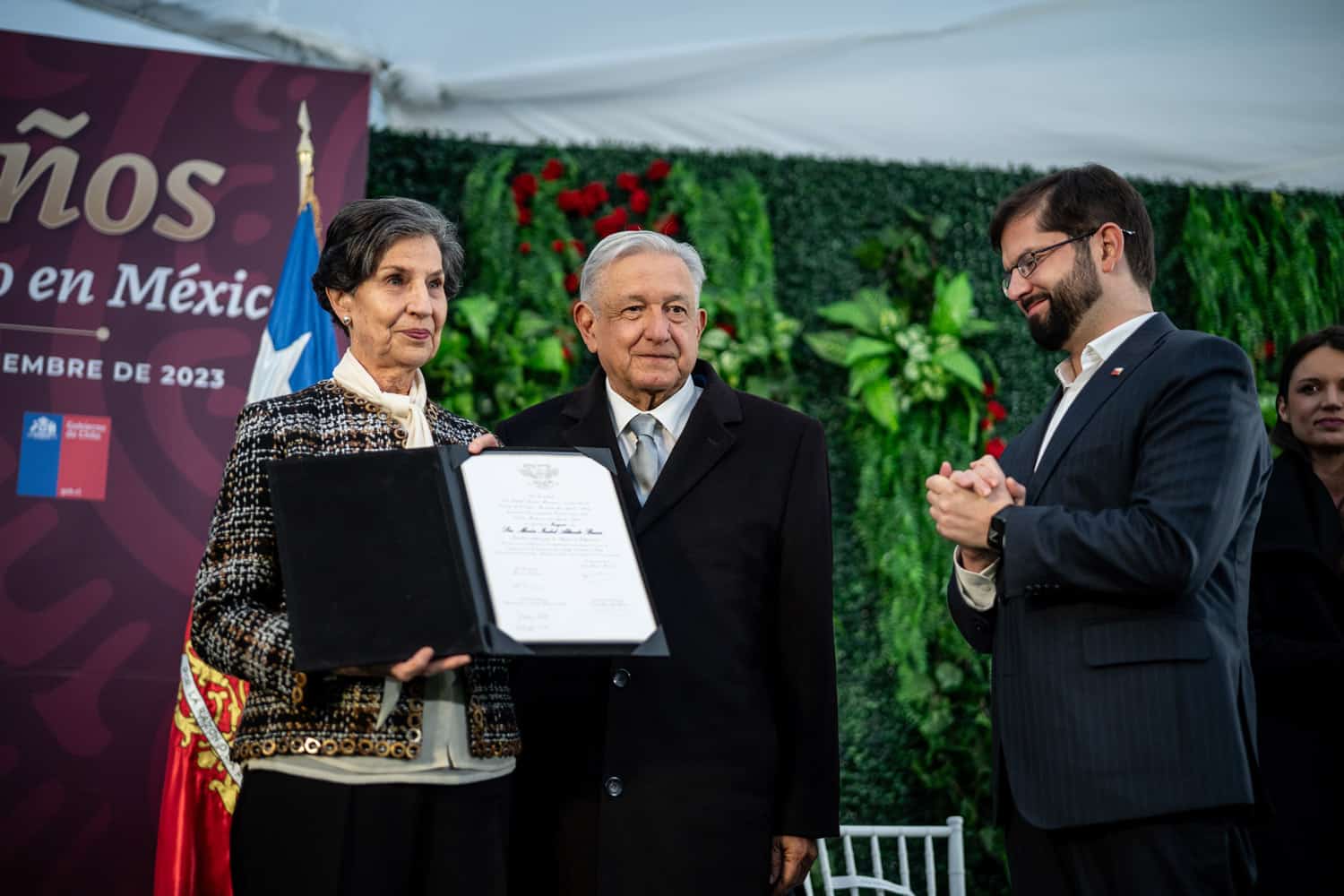
Gonzalo Martínez Corbalá, Mexico’s ambassador to Chile at the time of the coup, opened the doors of the embassy to as many people as he could, Allende said.
At the ceremony, the senator accepted from López Obrador on behalf of her deceased father the Mexican Order of the Aztec Eagle, the highest honor Mexico bestows on foreigners.
In his address, AMLO noted that in 1973, the Mexican government and people “showed with words and actions our support for the defenders of democracy in Chile, for the victims of a coup.”
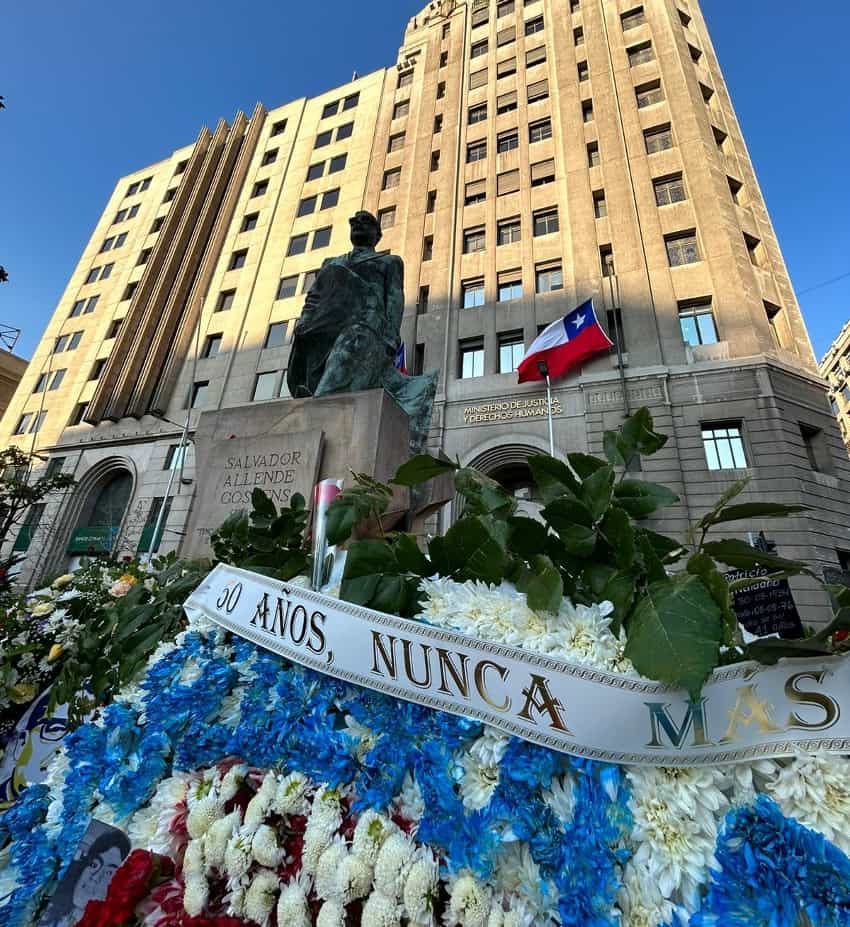
“… In those terrible times there were also coups in other Latin American countries and Mexico [also] opened its doors to a lot of people persecuted by the dictatorships in Bolivia, Uruguay, Argentina, Guatemala, El Salvador, Nicaragua and other countries,” he said.
López Obrador told the Chileans in attendance that they will always be welcome to return to Mexico.
“I remind all of you of something that you already know and have lived: Mexico, like Chile, is your homeland,” he said.
Boric, who visited Mexico last November, also attended the ceremony, at which he declared that Mexicans, Chileans and Chilean Mexicans are united by “the same affection and reciprocal appreciation.”
Mexico News Daily
Source: Mexico News Daily

